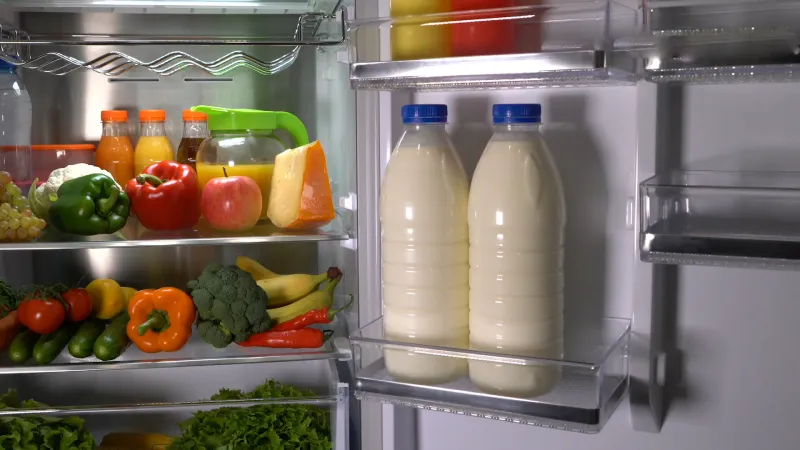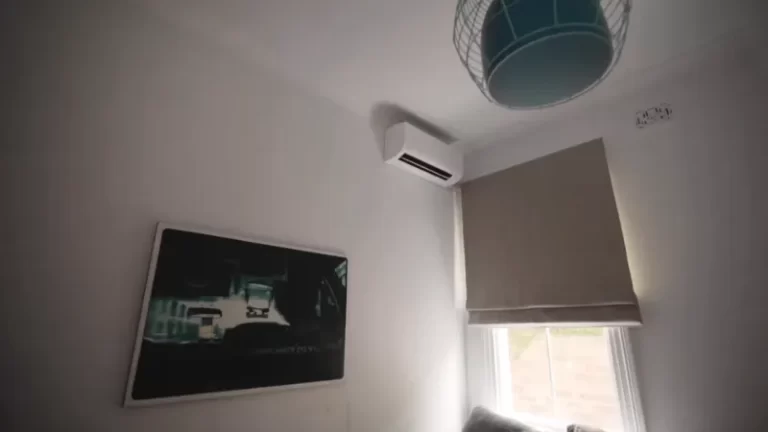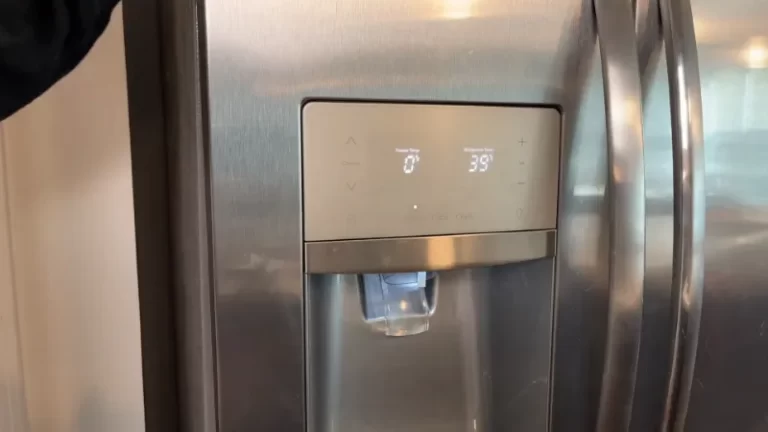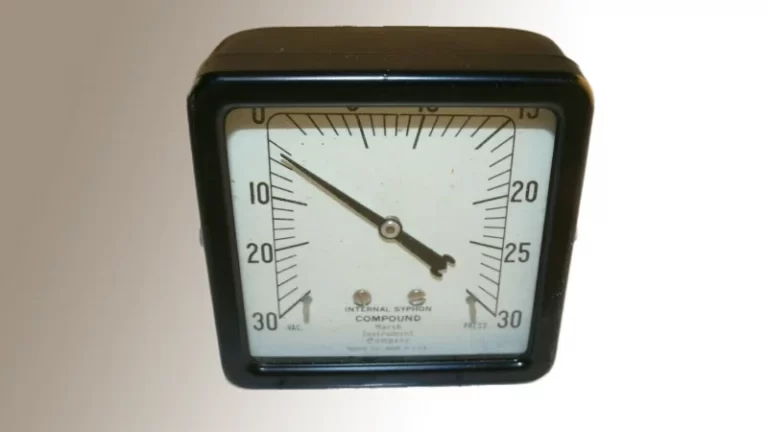Bosch Refrigerator Temperature Problem and Solutions

Bosch refrigerators are known for their reliability and efficiency, making them a popular choice among homeowners. Maintaining the proper temperature in a refrigerator is crucial to preserving food and ensuring food safety.
If a refrigerator is not working properly, it can lead to spoiled food, wasted money, and potential health hazards. In this blog, we will address common temperature problems in Bosch refrigerators and provide solutions to help keep your refrigerator running smoothly.
Whether you’re experiencing inconsistent temperature, an inability to defrost, or other issues, we will provide the information you need to resolve the problem and restore your refrigerator to proper working condition.
You'll Learn About
Problem #1: Refrigerator Not Cooling
The most common cause of a refrigerator not cooling is a malfunctioning compressor or a fan that is not working. Other possible causes include a clogged condenser, a dirty or faulty thermostat, and a lack of refrigerant.
How to Check Temperature Settings
Before attempting to fix a Bosch refrigerator that is not cooling, it’s important to check the temperature settings. The temperature settings can inadvertently be changed or moved by shifting objects in the refrigerator, changing the internal temperature.
To check the temperature settings, simply press the temperature setting button on the control panel. Make sure the temperature is set between 35-37°F for optimal cooling.
Solution for Fixing the Issue
If the temperature settings are set correctly and the refrigerator is still not cooling, it’s time to address the underlying issue. If you suspect a problem with the compressor or fan, it’s best to consult an expert or Bosch service for a proper diagnosis and repair.
If the issue is with the thermostat, you may be able to resolve the problem by cleaning the thermostat and ensuring that it is functioning properly. If the issue is with the condenser, it may be possible to resolve the problem by cleaning the condenser coils.
In some cases, it may be necessary to replace the thermostat or condenser to restore proper cooling.
In conclusion, if you’re experiencing a refrigerator not cooling issue, it’s important to address the problem as soon as possible to ensure food safety and prevent waste. By checking the temperature settings, identifying the underlying cause, and making the necessary repairs, you can restore your Bosch refrigerator to proper working condition and enjoy perfectly cooled food and drinks once again.
Problem #2: Warm Refrigerator Door
Role of the Rubber Gasket
The rubber gasket on a refrigerator door plays an important role in maintaining the proper temperature inside the fridge. The gasket creates a seal that prohibits cold air from escaping and warm air from entering.
This helps to keep the fridge cool and maintain the desired temperature.
Significance of a Clean and Functional Gasket
A dirty or damaged gasket can compromise the seal and result in a warm refrigerator door. When this happens, cold air can escape and warm air can enter the fridge, resulting in a warm interior. This can cause food to spoil and can result in a decreased efficiency of the fridge.
Solution for a Warm Refrigerator Door
If you’re experiencing a warm refrigerator door, the first step is to inspect the gasket for any signs of dirt, damage, or wear. If the gasket is dirty, it can be cleaned with a soft cloth and mild detergent.
If the gasket is damaged, it may need to be replaced. If the gasket is worn or if the door is not closing properly, you may need to adjust the hinges or have them repaired.
In conclusion, a warm refrigerator door can be a sign of a damaged or dirty gasket. By inspecting the gasket and making the necessary repairs or replacements, you can restore the proper temperature inside your Bosch fridge and keep your food fresh and properly stored. A clean and functional gasket is essential to maintaining a properly functioning refrigerator, so it’s important to address any issues as soon as they arise.
Problem #3: Inconsistent Temperature
Factors That Contribute to Inconsistent Temperature
There are several factors that can contribute to inconsistent temperature in a refrigerator, including improper temperature settings, dirty condenser coils, a clogged defrost drain, or a faulty thermostat. If the temperature inside the fridge is not consistent, it can result in food spoilage and decreased efficiency.
Importance of Proper Airflow
Proper airflow is essential to maintaining consistent temperature inside a refrigerator. When air can circulate freely, it helps to distribute cool air throughout the fridge and ensures that the temperature remains consistent. If airflow is restricted, it can result in hot and cold spots inside the fridge and cause the temperature to become inconsistent.
Steps to Fix Inconsistent Temperature
To fix inconsistent temperature in your Bosch refrigerator, follow these steps:
Check the Temperature Settings
Make sure the temperature inside the fridge is set between 35-37°F for optimal cooling.
Clean the Condenser Coils
Dust and debris can accumulate on the condenser coils, blocking airflow and causing the temperature to become inconsistent. Clean the coils with a soft cloth and a mild detergent.
Clear the Defrost Drain
If the defrost drain is clogged, it can cause water to build up inside the fridge and result in inconsistent temperature. Clean the drain with a small amount of hot water to clear any blockages.
Replace the Thermostat
If the thermostat is faulty, it can cause the temperature to become inconsistent. Replace the thermostat with a new one to restore proper temperature control.
Inconsistent temperature inside a refrigerator can be caused by several factors, including improper temperature settings, dirty condenser coils, a clogged defrost drain, or a faulty thermostat. By addressing these issues and ensuring proper airflow, you can restore consistent temperature inside your Bosch refrigerator and keep your food fresh and properly stored.
Problem #4: Inability to Defrost
Causes of Inability to Defrost
One of the common issues with refrigerators is the inability to defrost. This can be caused by several factors, including a faulty defrost thermostat, a malfunctioning defrost heater, or a problem with the defrost control panel. When the defrost system is not working properly, the frost and ice can accumulate in the freezer compartment, reducing its efficiency and making it difficult to access items stored inside.
Significance of a Functioning Defrost System
A functioning defrost system is crucial for maintaining the proper temperature in the refrigerator. When the frost accumulates, it reduces the airflow and the efficiency of the refrigeration system. This leads to an increase in the internal temperature, which can cause food to spoil and increase the energy consumption of the appliance.
Solution for Fixing the Issue
If your Bosch refrigerator is unable to defrost, you can try checking the defrost thermostat and defrost heater. If these components are functioning properly, you may need to replace the defrost control panel. It is recommended to consult a professional or a Bosch service technician to properly diagnose and fix the issue.
In conclusion, the inability to defrost is a common issue with Bosch refrigerators and can have significant consequences if not addressed. If you encounter this problem, it is best to take prompt action to prevent further damage to the appliance and to ensure the proper functioning of the refrigeration system.
Problem #5: Loud Noises
Possible Causes of Loud Noises
Loud noises from a Bosch refrigerator can be caused by several factors, including a worn-out fan blade, a malfunctioning fan motor, or a clogged condenser. Additionally, issues with the compressor or refrigerant levels can also cause loud noises in a Bosch refrigerator.
Importance of Addressing Loud Noises
Loud noises from a Bosch refrigerator can be disruptive and annoying, but they can also indicate a more serious issue with the appliance. Addressing the source of the loud noises is important in order to maintain the proper functioning of the refrigerator and prevent more significant issues from arising.
Solution for Reducing or Eliminating Loud Noises
In order to reduce or eliminate loud noises in a Bosch refrigerator, it may be necessary to clean the condenser coils or replace a worn-out fan blade or fan motor. In some cases, it may be necessary to call in a professional appliance repair technician to diagnose and fix the issue.
If you’re unable to identify the source of the loud noises, or if you’re unsure about how to fix the issue, it’s always a good idea to consult a Bosch service center or appliance repair professional for further assistance. They will be able to diagnose the problem and provide the necessary repair solutions to get your Bosch refrigerator running smoothly and quietly again.
Problem #6: Issues With Dispensers
Bosch refrigerators are known for their various dispensers that provide convenient access to drinks and ice. However, sometimes, these dispensers can experience problems, such as not dispensing enough or not dispensing at all.
These issues can be caused by a clogged or frozen water line, problems with the dispenser control board, or issues with the water inlet valve.
Importance of Functioning Dispensers
Functioning dispensers are an essential part of any refrigerator as they provide easy access to drinks and ice. If the dispensers are not functioning correctly, it can be a hassle to manually pour drinks and ice cubes from the refrigerator.
Solution for Fixing Dispenser Issues
If you’re experiencing issues with your Bosch refrigerator’s dispensers, there are a few steps you can take to resolve the problem. Firstly, check the water line for clogs or frozen water. If the line is clogged, try flushing it with warm water to clear the blockage.
If the line is frozen, allow it to thaw completely before using the dispenser again. If the problem persists, you can also check the dispenser control board or the water inlet valve for issues. If the problem is beyond your expertise, consider consulting a professional appliance repair service to diagnose and resolve the issue.
Issues with dispensers can be frustrating, but with a little bit of troubleshooting, they can often be resolved quickly and easily. By taking care of your Bosch refrigerator and addressing issues promptly, you can ensure it continues to provide reliable performance and convenient access to drinks and ice.
Conclusion
Bosch refrigerators are generally reliable, but there may be issues with cooling or temperature control. If the refrigerator is not cooling, it could be due to the temperature settings being changed, which can be corrected by pressing the temperature setting button and setting it between 35-37°F. You also get problems with alarms, noise, icemakers, or other things.
If the door is warm, it could be due to a dirty or damaged rubber gasket, which creates a seal to prevent warm air from entering. Other potential problems with Bosch refrigerators include loud noises, inability to defrost, and issues with dispensers.
If these problems persist, checking the defrost heater and defrost thermostat, replacing the defrost control panel, or consulting a Bosch expert or service can provide solutions.



